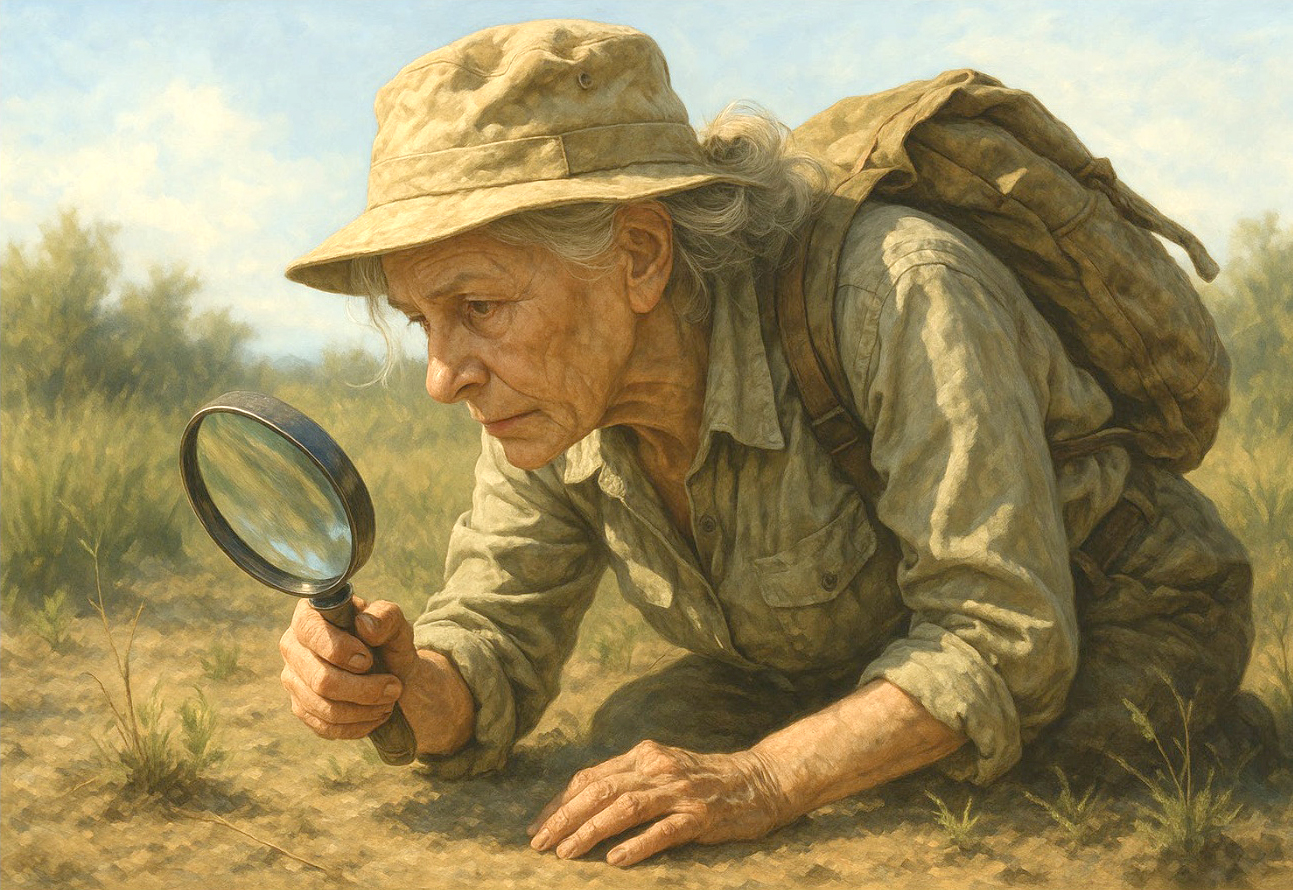
Aging has given me a place to look around and see my world. I call that vantage point my tower, a location from which I can observe. Now that I’ve stopped energetic activity and live quietly, I can view more of my setting. Our town, the country, and the diverse people who live here come under my scrutiny. The scene is enlightening, amazing, beautiful — and sometimes disturbing.
To be still and observe is a human activity akin to loving. I read of a Chinese student who studied in the US but missed his small village back home. He missed its dirt roads, its tiny shops, and the chance, he said, “to stand and stare.” In thinking about his remark, I realize that staring keeps the moment alive in memory. It’s a way to know, to absorb and even be changed.
I admire the dedicated watchers who take the time to stare. There are some among us here in 5enses, like AD Foster, who is fascinated with cats, and Ryan Crouse, an enthusiastic birdwatcher. Cats and birds matter, and they deserve observation by people who honor them with a close look.
Scientists are especially good observers. The famous scientist EO Wilson, featured in the TV documentary Of Ants and Men, lay in the dirt staring at ants for hours. Like Sherlock Holmes with his magnifying glass, Wilson watched ants. Out of a deep respect for the activities of these tiny creatures, Wilson learned of a universe beyond our careless lives. I imagine beekeepers would say the same.
My husband Don is a woodworker, and when he’s absorbed in his craft he focuses intently, like Dr. Wilson on his ants. It must be that all other things in the world fall away when these scientist/artists are at work. To be so taken with their vision that all else disappears is what sets these folks apart. We can’t know their findings till they create a finished piece or write an article about what is revealed in their stares into the hive.
Intensity of focus is not an attribute only of scientists or artists; it’s become an escape for everyone with a cellphone. I stare into my phone when I’ve an appointment and must wait in an uncomfortable chair; there could be a tsunami approaching and I’d miss it. My focus on Wordle or the news takes me away from the featureless room, the chair and the reality around me. I leave the present. Those who tell us to ‘live in the moment’ have a job to do in the face of captivating technology.
Because I’ve been a teacher, I worry that teenagers miss seeing the world outside their phones. They aren’t watching the world around them, never mind approaching dangers. I’ve no idea what matters have taken their attention. Is it seductions? Homework assignments? A friend’s personal life? A plan for adventure? Scandals at school? The stupidity of parents? I see in my list here many concerns to absorb a teen, but I’d rather they looked away from their phones and smelled the flowers.
Staring is an enriching pastime, but not so sweet if you’re a snoop. I saw a television program about a maiden lady who inherited her father’s telescope and used it to watch her neighbors, staring from her tower at their daily lives. She was a quiet, modest person who was, we learned in the mystery story, filled with hatred. There’s something about a person who trains binoculars on innocent people that’s creepy.
The practice of observing from our towers so we can find people we think are undesirable has lately been done by supremacists who want this country to be just for those whom they favor. When we seek out people of the wrong religion, the wrong skin color or ethnicity to eliminate them, the result is evil. I can recall when that vicious hunt was done by fascists in Europe, leading to the Holocaust, in which millions were murdered. Now, here in America, people outside the norm are losing their jobs, being deported or harassed on our streets, and I’m old enough to remember the horrors that resulted.
When we view our country from our towers, the sights ought to be varied, funny, impressive, and a jumble of differences. We are a crazy-quilt of humanity. We’ve managed to incorporate our differences into a community, and it took the energy of heroes who marched, debated, and led us forward into inclusion. Those heroes are still gathering in protest where they find attempts to stifle diversity and freedom.
Like that Chinese student who missed his little village, I miss admirable American leaders who were committed to helping our diverse population live healthy lives and flourish unafraid.
Elaine Jordan, author of Mrs. Ogg Played the Harp, is a local editor who’s lived in Prescott for thirty years.